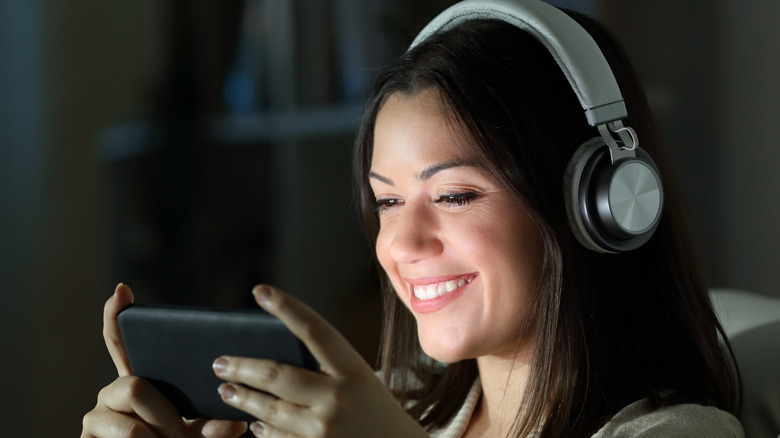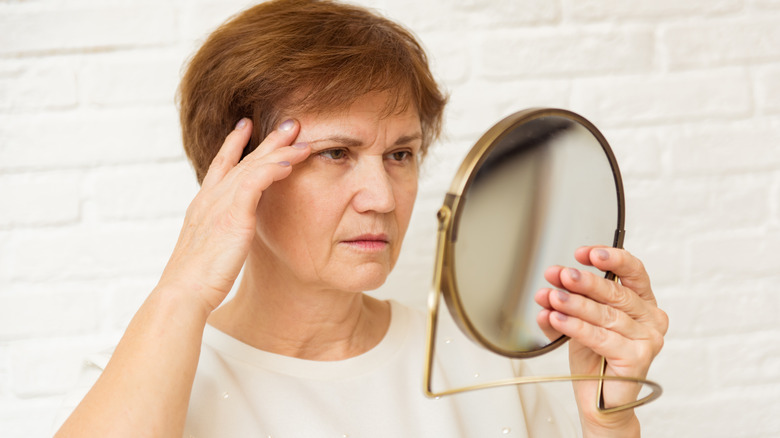The Unexpected Way Your Cell Phone Ages Your Skin
You have probably heard of the hazards related to the blue light that comes from your electronic devices. If you look at your cell phone at night while laying in bed as you wait to fall asleep, it can disrupt your circadian rhythm, making it harder to get some shut-eye (via Harvard Medical School). In addition to that, blue light could be damaging your skin.
Blue light is high-energy visible (HEV) light, and it can affect your skin. While sunlight is our primary source of HEV light, the screens on mobile devices also produce it. Blue light from electronic devices may not be as strong as the light from the sun, but experts believe that blue light penetrates deeper into the skin than ultraviolet light (via The Healthy). WebMD reports that research shows blue light can cause changes in your skin that lead to cell shrinkage and death — two processes that accelerate aging. Worse yet, as little as 60 minutes can result in these changes.
HEV light can cause wrinkling and dark spots
HEV light can lead to other kinds of damage. Dr. Alejandra Vivas of Minars Dermatology told The Healthy that blue light damages collagen "via oxidative stress." Dermatologist Dr. Jeffrey Fromowitz told the publication that the result of excessive blue light exposure can also result in wrinkling, and pigmentation of the skin in the form of sunspots or melasma. That said, there is currently no link between HEV light and skin cancer.
If you're worried about the risks of HEV light, there are some things you can do. Dr. Fromowitz told The Healthy that the best way to protect your skin is to simply cut down on how much you use electronic devices, adding that another benefit of doing so can help improve sleep. In addition to that, Everyday Health recommends using screen protectors on your devices and wearing headphones during phone calls. You can also opt to use skin-care products that contain antioxidants, like vitamin C, to help reduce any damage.


